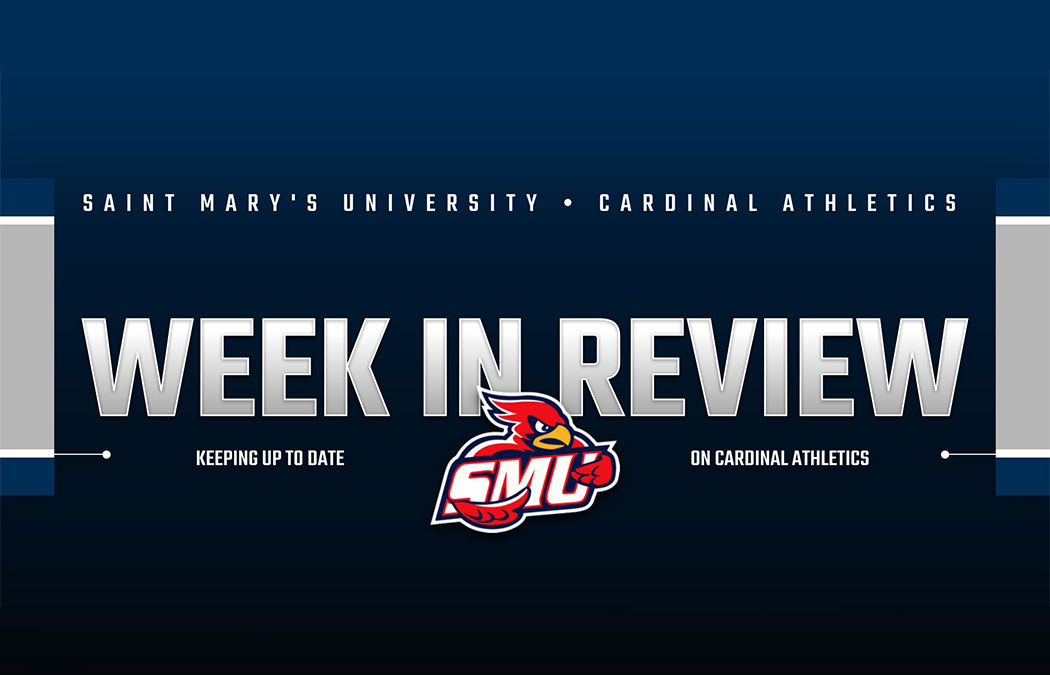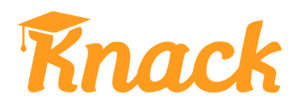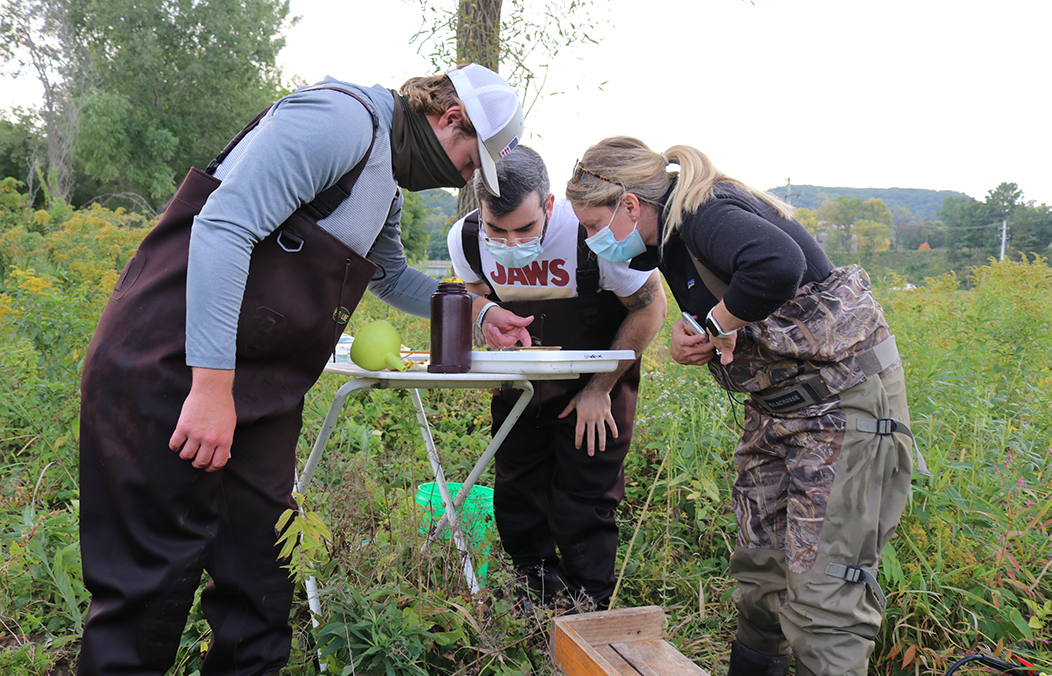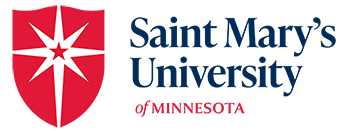Saint Mary's Newsroom / Campus Notes
Winona Campus NewsletterAward-winning book by Dr. Wales Freedman addresses appropriate crisis response
That “Reading Testimony, Witnessing Trauma” was published just as a global pandemic hit and just prior to a heightened Black Lives Matter movement is serendipitous and timely.
Eden Wales Freedman, Ph.D., vice provost for faculties and academic affairs, describes her book as detailing how we can respond to one another in times of crisis, particularly after people have survived trauma. It was recently selected as the Eudora Welty Prize winner for 2020.
“The specific traumas I analyze have to do with identity, namely people who have survived trauma because of who they are and because of their race or gender specifically. The book explores traumas fueled by racism and sexism in the U.S. and how we can respond to that violence both as intellectuals and as empathic compassionate people,” she said.
 “Reading Testimony, Witnessing Trauma” delves into an important area not frequently addressed. Dr. Wales Freedman found an immense amount of literature, both fiction and nonfiction, that explores what happens to people because of who they are. And, she said, theorists have written a great deal about why and how people write about the violence they survive.
“Reading Testimony, Witnessing Trauma” delves into an important area not frequently addressed. Dr. Wales Freedman found an immense amount of literature, both fiction and nonfiction, that explores what happens to people because of who they are. And, she said, theorists have written a great deal about why and how people write about the violence they survive.
”But not a lot of people, no one really before me, has written about what we do with those traumatic narratives once they exist,” she said. “I became concerned that readers and listeners were inadvertently contributing to imparted trauma just by reading or listening to it. If you read trauma and treat it voyeuristically, like gossip, that doesn’t help folks work through the trauma they have endured. Negative reading or listening could actually do more violence to them. Similarly, if we deny what they said has happened, because it’s so horrible we can’t get our arms around it, we can also do violence to them.
“We, as human beings, are really bad at responding to other people’s pain.”
Dr. Wales Freedman said her book, which emanated from her doctoral dissertation, has an academic focus but also a practical community focus. “If we can respond appropriately to one another, even when someone has experienced something we haven’t or we can’t quite comprehend, we can help make the world a better place,” she said.
“The book is academic. It’s about literature. Not everyone wants to read literary criticism. But in terms of theories, the book has a practical element: Here are things you can say when confronting others’ experiences that are helpful, and here are things you can avoid saying that risk doing damage. We are becoming more and more aware of the violence we do to one another, of the suffering that humans endure. Violence and suffering have existed since human beings have existed, but, in many cases, our awareness is new. It’s good to have heightened awareness of others’ experiences. But awareness alone doesn’t change the world. The way we treat one another does. One thing we can do to help heal a broken world is to respond to others with compassion, to listen to one another and allow others’ stories to unfold in a way that feels healing vs. harmful.”
Dr. Wales Freedman will be recognized at the virtual Eudora Welty Writers’ Symposium Oct. 22-24. The University Press of Mississippi nominated “Reading Testimony, Witnessing Trauma,” and a committee of faculty at Mississippi University for women made the selection. They wrote, “This was a very strong field this year. The committee felt, however, that “Reading Testimony, Witnessing Trauma” made the greatest contribution to the field by presenting a new approach to understanding Southern Literature and culture, especially through the experience of women writers of color.”
Meet Dr. Cochran Biederman, assistant professor of biology
Jennifer Cochran Biederman ’05, M’08, Ph.D., joined Saint Mary’s University as an assistant professor of biology on Aug. 17.

Dr. Cochran Biederman
Prior to joining Saint Mary’s, Dr. Cochran Biederman was an assistant professor of biology at Winona State University where her research focused on the conservation of freshwater ecosystems in southeastern Minnesota, including the application of citizen science monitoring to identify pollution in at-risk streams.
“I am really passionate about integrating hands-on research into the learning experience,” said Dr. Cochran Biederman. “As a freshwater biologist by training, I love finding opportunities to connect students with water and all of the incredible biodiversity it holds.”
Dr. Cochran Biederman holds a Ph.D. in conservation biology with a concentration in fisheries and aquatic biology from the University of Minnesota. She also holds an M.S. in wildlife and fisheries sciences from Texas A&M University, an M.A. in life science instruction from Saint Mary’s, and a B.A. in environmental biology from Saint Mary’s.

Dr. Cochran Biederman doing fieldwork with students in Gilmore Creek on the Winona Campus
With many familial connections to Saint Mary’s, Dr. Cochran Biederman is grateful to be back at the institution.
“Since attending Saint Mary’s university as a student, I’ve had a great journey to graduate school and teaching at a mid-size public university. However, I’ve always missed the sense of institutional mission,” said Dr. Cochran Biederman, whose dad formerly taught biology at Saint Mary’s. “The Lasallian charism has really influenced my life, and I am so grateful to be immersed in that mission again. Even after just a few short weeks back on campus, I am reminded and excited about what a student-centered and high-quality education that’s offered at Saint Mary’s.”
Dr. Cochran Biederman has extensive research and field experience, has been the recipient of numerous grants and scholarships, and has authored supplemental content for four recent textbooks.
Join us in welcoming Dr. Cochran Biederman!
Related: Brown trout research will measure effects of climate change

Cardinal athletics — the week in review
Greetings, Cardinal nation! Due to the COVID-19 pandemic, there are no athletic events to report on this fall. But there is still plenty to keep up with around Saint Mary’s athletics. Here’s a look at the highlights from this past week.

Green Bandana Project offers virtual training Sept. 30
The Green Bandana Project is excited to offer a virtual training for all those interested on Wednesday, Sept. 30, from 6 to 8 p.m.!
Students who have completed a mental health training session will be given a green bandana to attach to their backpacks — along with small tags containing resources such as on-campus services or off-campus organizations.
 The bandana indicates the student:
The bandana indicates the student:
- Is a trained and safe individual to approach with mental health-related issues
- Knows where resources are
- Can help connect others to various outlets to provide help and support in times of crisis
To sign up for the training, complete this Google Form. You will receive a Zoom link to attend the training prior to Sept. 30.
If you have any questions, reach out to senior Justine Schultz at jxschu16@smumn.edu or SAAC advisor Sam Borawski at sborawsk@smumn.edu.
Tutoring and peer learning assistance
Stop the guesswork! Sign-up for a tutor at smumn.joinknack.com, logging in with your Saint Mary’s student account.
Need help writing papers? Contact the Saint Mary’s Writing Center.
If you have any questions, email Joe Dulak at jdulak@smumn.edu. If you experience any technical difficulties with Knack, email support@joinknack.com.


Brown trout research will measure effects of climate change
Alessio Caselli is in his element in chest waders.
The senior environmental biology major and zoology minor hopes one day to become a marine biologist.
So spending a couple of hours this past week measuring, studying, and tagging brown trout solidified Caselli made the right career choice.
There is no better hands-on classroom than Gilmore Creek, which runs through the Winona Campus. Assistant Professor of Biology Jennifer Cochran Biederman, Ph.D., waded into the creek with Caselli and another senior environmental biology senior Mitchell Feyereisen. The goal of their research is to determine how changes in water temperature due to climate change will impact growth of brown trout in the creek.
“Although we are not entirely sure what to expect, we do anticipate that increased water temperatures due to climate change will alter trout growth and behavior,” Dr. Cochran Biederman said. “After we gather about a year’s worth of data, we will be able to do modeling to help us predict the impact of climate change on freshwater fish communities.”
She said the participating students learned some valuable field techniques in collecting stream fish using electrofishing methods. They acquired skills in how to properly measure and weigh the trout and inject transponders known as PIT tags, so they can attempt to recapture them throughout the year and monitor their growth. They are also analyzing the trouts’ resource use, including diet and spawning habitat, and are monitoring physical stream characteristics, including water temperature.
Caselli said his biggest takeaway from the experience was learning trout don’t colonize the whole creek. “The small ones are found upstream, and the very big ones are found more downstream,” he said.
The opportunity to be involved in these kinds of hands-on experiences is invaluable to Caselli. “It’s my dream to work in the field,” he said. “I love animals and the outdoors. My hope is that this research continues in future years, so we can determine if there is anything special about the fish in Gilmore Creek.”
Photo caption: Jennifer Cochran Biederman, Ph.D., right, works with two senior environmental biology students, Mitchell Feyereisen, left, and Alessio Caselli, center, on research involving brown trout.
Isolation and quarantine FAQs for students
Should I get tested if I just have minor cold symptoms?
Probably. Many college students have very mild symptoms or no symptoms at all, so it’s better to get tested and avoid spreading the virus. Call the Wellness Center at 507-457-1492 to talk about your symptoms and whether it is recommended you get tested.
If I have symptoms, can’t I just be careful and wait it out?
No! If we want to make it to the end of the semester, it’s important we identify positive cases and close contacts of those cases to prevent the spread of the virus to others. Even though many people have mild symptoms, they can still infect others before symptoms develop or after they’ve improved. In order to protect those at higher risk and prevent mild cases from turning into an outbreak, it’s important to get tested.
Is the test for COVID-19 uncomfortable?
Not really. Testing in the Wellness Center uses a nasal swab which is essentially a Q-tip inserted about 1 inch into the nose. Most students find this more comfortable than the throat swabs used to test for strep throat.
Do I have to quarantine while I’m waiting for test results?
Yes, but you can do this in your room. Roommates have generally already been exposed to one another, so students are able to stay in their room to wait for their test result. Roommates are encouraged to wear a mask and stay 6 feet apart while waiting for results.
What do I do about my classes while I’m waiting for test results or I’m in quarantine or isolation?
As long as the Wellness Center is aware you are waiting for test results or are in isolation or quarantine, they will notify other campus departments to make sure faculty are aware you will temporarily need to continue your classes remotely. Communicate directly with your faculty about how this will work.
How will I get meals while I’m waiting for test results or I’m in quarantine or isolation?
As long as the Wellness Center is aware you are waiting for test results or are in isolation or quarantine, they will notify other campus departments to make sure meals are delivered to your room (for on-campus students). Be sure to let them know if you have any dietary restrictions.
What if I got tested for COVID-19 off-campus?
Notify the Wellness Center so they can work with other campus departments to make sure your faculty are aware you will not be in class and to make sure meals get delivered to you (for on-campus students). Be sure to notify the Wellness Center of your results as well. You won’t be allowed to return to class until faculty have been notified.
What if I was told I’m a close contact of someone who tested positive for COVID-19?
Notify the Wellness Center. They will help answer your questions and coordinate notification of faculty and meal delivery (for on-campus students). You will need to remain in quarantine for 14 days. The 14-day quarantine period begins on the day of last close contact with the person who tested positive.
If I’m a close contact, can I quarantine in my room?
Maybe. If you have your own sleeping room, you can quarantine there. If you share a sleeping room and your roommate is also in quarantine, you can quarantine together, but if one of you tests positive for COVID-19, the quarantine will start over for other roommates. For this reason, you may prefer to quarantine separately. If your roommate does not need to quarantine, you have the option of returning home for quarantine or going to the Alverna Center for that time.
If I’m a close contact should I get tested?
Probably. Many college students have mild symptoms or no symptoms so it’s probably best to get tested if you are a close contact. Infection can develop anywhere from 2-14 days after close contact, so it’s important not to test too early. You should wait at least 5-7 days after your last close contact with the person who tested positive. Even if your test is negative, it’s important to finish up the 14-day quarantine since infection can still develop up to 14 days after close contact.
If I test positive for COVID-19, can I isolate in my room?
No. Per Minnesota Department of Health guidelines, students who test positive for COVID-19 should isolate in a separate space set aside for that purpose, away from other students. You would have the option of returning home or moving to the Alverna Center where you would have a single room and your own bathroom. The 10-day isolation period begins on the day symptoms first began or on the date you were tested (if you don’t have symptoms).
Will my faculty be told if I test positive for COVID-19?
No. Faculty are advised that a student will be out of class, but are not told whether this is because you are waiting for a test result or are in isolation or quarantine. It is not necessary for faculty or classmates to be informed of your positive test unless you have identified them as close contacts.
Where can I learn more?
Contact the Wellness Center with questions at 507-457-1492 or wellnesscenter@smumn.edu.
COVID-19 updates
Cardinals,
Thank you for another great week. And thank you to each of you for continuing to adhere to the COVID-19 guidelines. Please keep it up so we can be here all the way through November. A short message of gratitude was created by members of the Saint Mary’s community:
All the best,

Tim Gossen, Ed.D.
Vice President for Student Affairs
Important notes related to COVID-19
Winona County Emergency Management is advising against travel to La Crosse County for leisure activities, including bars, restaurants, non-essential shopping, and other non-essential activities. The La Crosse County area has seen a rapid increase in COVID-19 cases, especially in ages 20-29. If you must travel to La Crosse County for doctor appointments, work, or essential things, make sure to take necessary precautions. Wear your mask, stay physically distant, and be sure to wash your hands. If you do plan to travel to La Crosse or another area outside of the Winona/Rochester area, complete the travel notification form.
Health Services created an FAQ about isolation and quarantine.
You need to wear a mask when outside and unable to social distance from others. For example, if you are going to pass individuals in the Plaza or on the sidewalk, you need to have your mask on. If you are sitting in Saint Mary’s Park by yourself, you do not need to have your mask on, but have it available in case a friend comes by. If ever wondering, the default is to always wear your mask.
If you’re planning an event or gathering, complete the COVID-19 gathering form for approval prior to advertising and reserving a room.
If you have a question or concern, fill out the form and let us know.
Upcoming presidential debate watch events and panel discussions
In a universitywide initiative, the Office of the Provost and the Office of Student Affairs will be hosting debate watch events and panel discussions on civil discourse one hour prior to each of the presidential and vice presidential debates. These moderated events will take place over Zoom. To be clear, these are non-advocacy events with a chance to hear from panelists and engage in discussions about civil discourse informed by the United States Conference of Catholic Bishops (USCCB) document, Forming Consciences for Faithful Citizenship: A Call to Political Responsibility from the Catholic Bishops of the United States.
The first such event will be held from 7 to 7:50 p.m. on Tuesday, Sept. 29, moderated by Brian Schmisek, Ph.D., provost and dean of faculties. Panelists will be Brother Robert Smith, FSC, Ph.D., senior vice president for university initiatives and special advisor to the president; Sonia Feder-Lewis, Ph.D., core professor in the Ed.D. in Leadership program; and Michael Charron, executive director of sponsored programs. More information about future events will be forthcoming.
Option to add more block meals
Are you running out of meals and want more block meal exchanges? You can add 25 meals for $210 which can be used at the cafeteria or Cardinal Club. Just complete this Google form to add blocks.
Voter registration drive
Sept. 22 was National Voter Registration Day! The Saint Mary’s Student Senate, in collaboration with College Democrats and College Republicans, coordinated an ongoing voter registration drive. Students are encouraged to register to vote. When registering, you can select Minnesota or your home state (if you’re staying in Winona, you can do either, but not both). This will provide you with links to register to vote and request absentee ballots. We strongly encourage you to do both, because this will ensure you can vote while here on campus.
Megan Kowalis
Vice President of Campus Affairs, Student Senate
mtkowa17@smumn.edu
Clare Bath
President, College Democrats
cxbath16@smumn.edu
Jonathon Krull
President, College Republicans
jpkrul18@smumn.edu
Register today: Résumé workshop
Learn how to market yourself with a high impact résumé on Tuesday, Sept. 29, at 7 p.m. via Zoom. This workshop will cover the latest trends and best practices in résumés for any career or major. All aspects of a résumé will be discussed, including headers, profile summaries, education, work experience, transferable skills, accomplishment statements, and more.
Coming soon: First virtual career fair, résumé workshop
Résumé workshop
Learn how to market yourself with a high impact résumé on Tuesday, Sept. 29, at 7 p.m. via Zoom. This workshop will cover the latest trends and best practices in résumés for any career or major. All aspects of a résumé will be discussed, including headers, profile summaries, education, work experience, transferable skills, accomplishment statements, and more.
Register for this free workshop
Virtual career fair
Get ready to attend Saint Mary’s first virtual career fair Wednesday, Oct. 21, from 10:30 a.m. to 1:30 p.m., hosted via Handshake. You can easily attend this free event from the comfort of your own room (still dressed professionally!) and meet with prospective employers, internship sites, and graduate programs from the Winona area and beyond.
Register by Monday, Oct. 12. Learn more.
Sign up for group sessions and one-on-one appointments. Learn more.
Become familiar with what it will look like the day of the fair.
Questions? Contact Mike Hagarty, director of Career Services, at mhagarty@smumn.edu or Elliott Rysavy, career fair coordinator, at exrysa16@smumn.edu.



